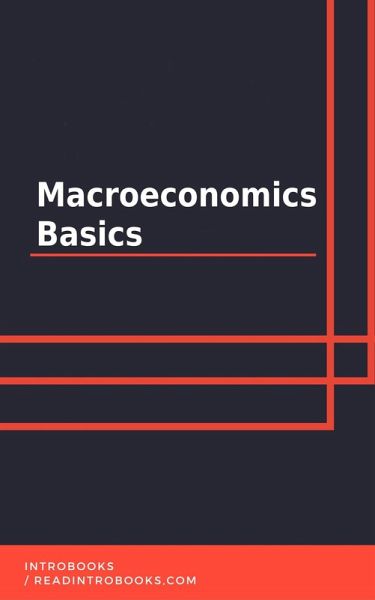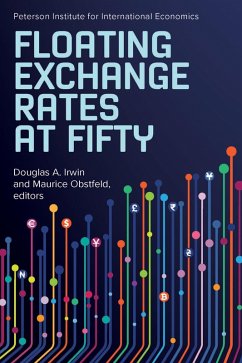
Macroeconomics Basics (eBook, ePUB)

PAYBACK Punkte
0 °P sammeln!
Macroeconomic forces affect all of us in our daily lives. Inflation rates influence the prices we pay for goods and services and, in turn, the value of our incomes and our savings. Interest rates determine the cost of borrowing and the yield on bank accounts and bonds, while exchange rates affect our command over foreign products as well as the value of our foreign assets. And all of this represents just the tip of the iceberg. Numerous macro variables-ranging from unemployment to productivity-are equally important in shaping the economic environment in which we live. For most business manager...
Macroeconomic forces affect all of us in our daily lives. Inflation rates influence the prices we pay for goods and services and, in turn, the value of our incomes and our savings. Interest rates determine the cost of borrowing and the yield on bank accounts and bonds, while exchange rates affect our command over foreign products as well as the value of our foreign assets. And all of this represents just the tip of the iceberg. Numerous macro variables-ranging from unemployment to productivity-are equally important in shaping the economic environment in which we live. For most business managers, a basic understanding of macroeconomics allows a more complete-as well as a more nuanced-conception of market conditions, on both the demand side and the supply side. It also ensures that they are better equipped to anticipate and to respond to major macroeconomic events, such as a sudden depreciation of the real exchange rate or steep hike in the federal funds rate. Although managers can enjoy success even if they don't truly understand these sorts of macro variables, they have the potential to outperform their competitors-to see hidden opportunities and to avoid unnecessary (and sometimes very costly) mistakes-after incorporating basic macro concepts and relationships into their management toolbox. In the 1990s, for example, managers who knew how to read and interpret a balance of payments statement had a definite leg up in dealing with the Mexican and Asian currency crises. Similarly, those who understood the essential dynamic of a bank run-and the power of negative expectations-were better positioned to cope with the financial crisis of 2007-2009. Nor is the practical value of macroeconomics confined to business. A basic understanding of the subject is important to us as consumers, as workers, as investors, and even as voters. Whether our elected officials (and the individuals they appoint to lead crucial agencies, such as the Federal Reserve and the Treasury Department) manage the macroeconomy well or poorly obviously has great significance for our quality of life, both now and in the future. Whether a large budget deficit is advantageous or disadvantageous at a particular moment in time is something that voters should be able to evaluate for themselves. Unfortunately, even many well-educated citizens have never studied macroeconomics. And those who have studied the subject too often learned more about how to solve artificial problem sets than about the true fundamentals of the macro economy. Macroeconomics is frequently taught with a heavy focus on equations and graphs, which, for many students, obscure the essential ideas and intuition that make the subject meaningful. Here we attempt to provide a conceptual overview of macroeconomics, emphasizing essential principles and relationships, rather than mathematical models and formulas. The purpose is to convey the fundamentals-the building blocks-and to do so in a way that is both accessible and relevant.
Dieser Download kann aus rechtlichen Gründen nur mit Rechnungsadresse in A, B, CY, CZ, D, DK, EW, E, FIN, F, GR, H, IRL, I, LT, L, LR, M, NL, PL, P, R, S, SLO, SK ausgeliefert werden.













